David Ellefson and Frank Bello: “We've never really been the soloists in our native bands, so now was our time to step up”
The Megadeth and Anthrax bassists on Altitudes & Attitude's debut
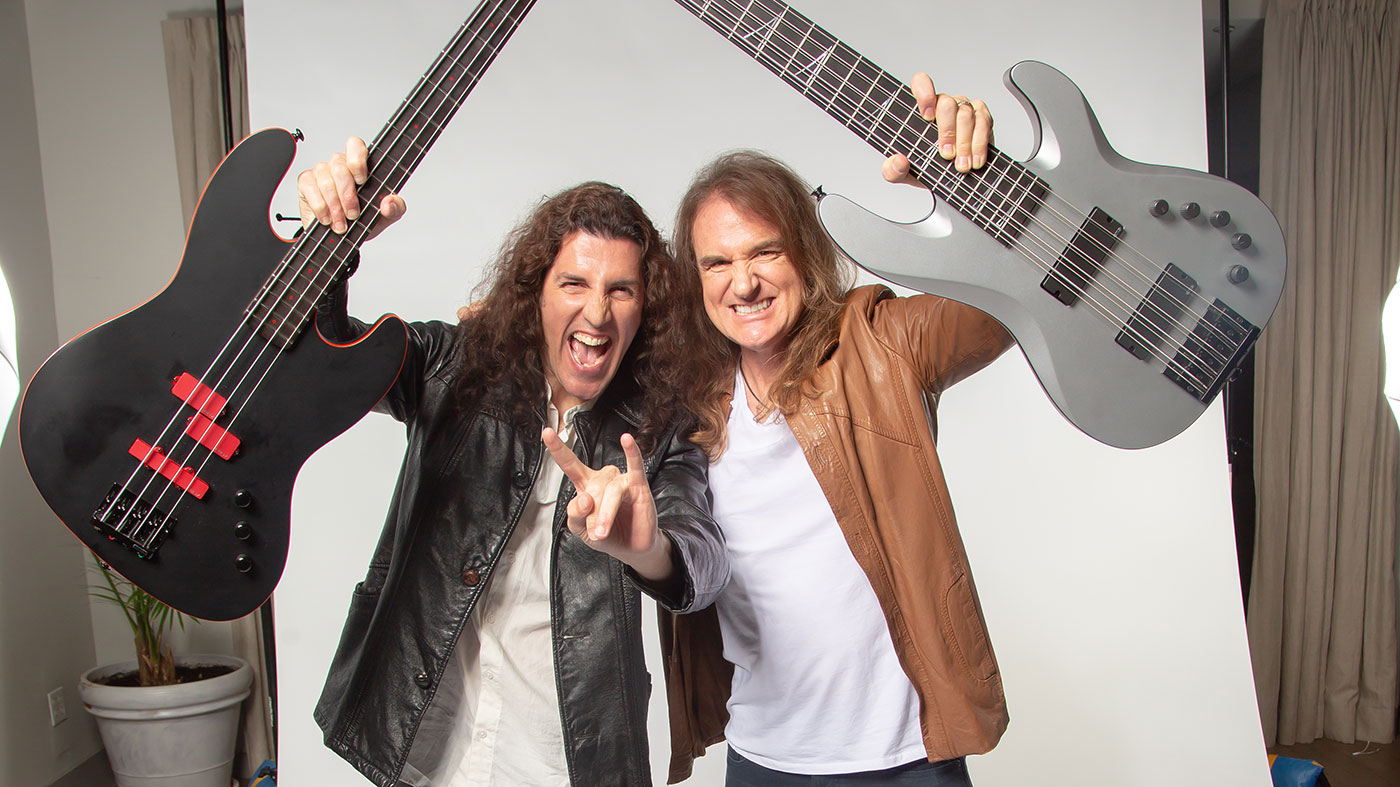
If you’re David Ellefson of Megadeth and Frank Bello of Anthrax and you have time to be creative between albums, what do you do? Team up and write the rock album of the year, of course...
Now, if you or I had spent the last three decades touring the world, playing the biggest arenas on the planet and covering the bedroom wall with gold discs, we might well enter the middle of our careers with nothing more in mind than a few well-earned years of rest and recuperation, with perhaps the occasional tour for fun. Right? In the case of Anthrax bassist Frank Bello and David Ellefson of Megadeth, the answer is a resounding ‘Hell no’.
The two thrash metal legends, based in New York and Phoenix respectively, have teamed up in a project called Altitudes & Attitude and delivered a debut album, Get It Out.
Frank and I both have these songs inside of us that just needed the proper outlet
The new band first appeared four years ago, recording an excellent self-titled EP, and are now taking the next steps forward. A&A, in which the twosome are backed by A Perfect Circle drummer Jeff Friedl, will be touring the UK and Europe supporting Guns N’ Roses guitarist Slash and his solo band. As with the 2014 EP, Get It Out - titled after the confessional nature of the songs - has been produced by the esteemed Jay Ruston of Anthrax and Stone Sour fame.
Guests tasked with providing guitar solos include sometime Kiss axeman Ace Frehley, Gus G, Nita Strauss, Christian Martucci and Satchel. Bello sings and plays most of the guitars, while Ellefson delivers the majority of the bass; we’ve been playing the new album incessantly since we got our hands on a promo copy, and we can confirm that it’s packed full of songs that will not be forgotten easily.
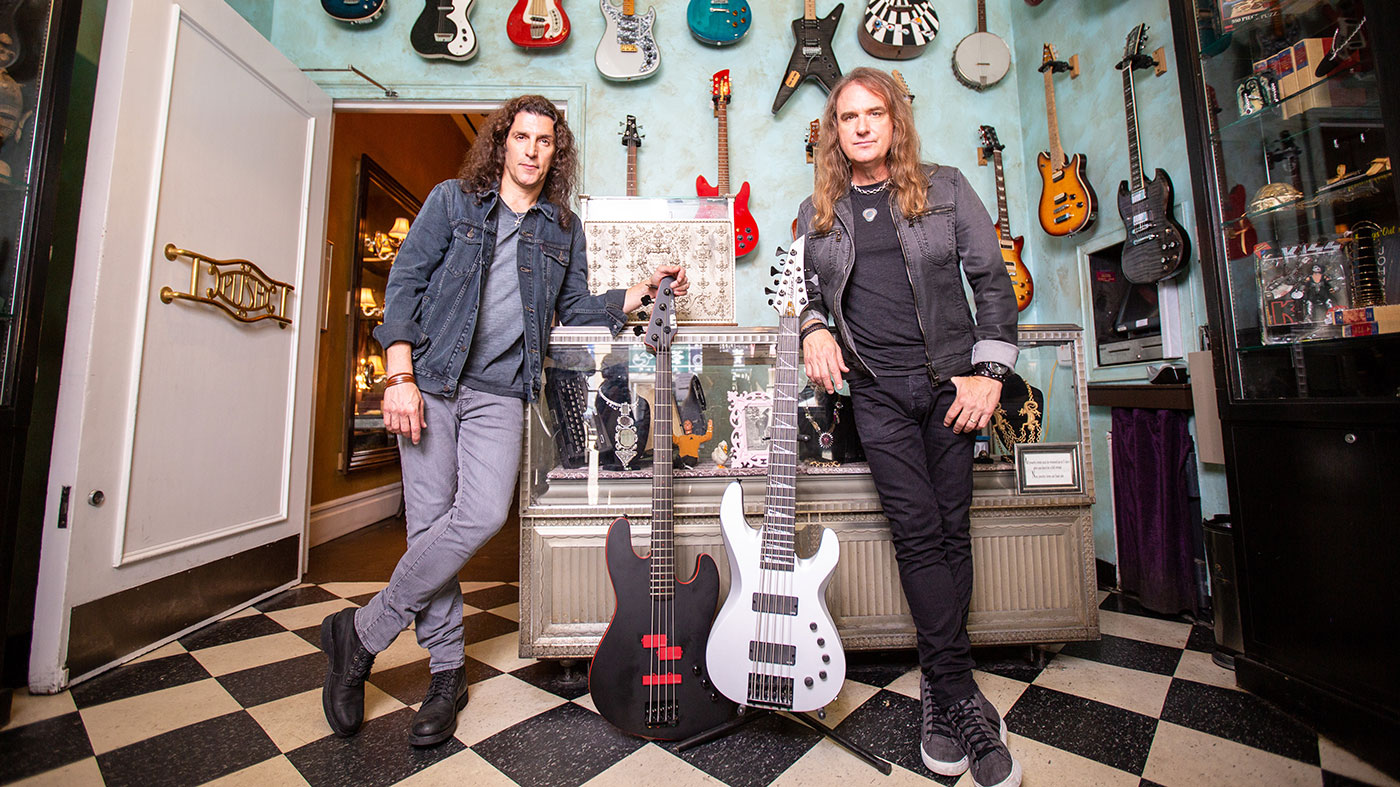
Believe us, A&A isn’t simply a oneoff vanity project in which two bassists compete to show off their chops. This is a real band, with real songs that address lyricist Bello’s deepest thoughts.
When we sat down with the two headbangers for a chat about how the album came into being, we were aware that this is a project that could only have happened through a rare alignment of schedules. Megadeth have plenty going on, from new album sessions to their Megacruise in autumn, while Bello promises us that Anthrax are currently writing their heaviest-ever songs. How do they do it? Read on and find out...
Get the MusicRadar Newsletter
Want all the hottest music and gear news, reviews, deals, features and more, direct to your inbox? Sign up here.
Congratulations on the new album, gentlemen. The music is totally different to the songs you play with Megadeth and Anthrax.
Ellefson: “Frank and I both have these songs inside of us that just needed the proper outlet. We both play in bands that are iconic because they’re so specific. As artists, we all have other sides to us that are not appropriate to come out in our main bands, because it would change the scope and the intent of what they’re designed to do.”
Bello: “With these songs, you’re literally hearing what I do at home. I pick up a guitar and strum, and I have a good time with it. When I’m in the mood to sing and play, there’s nothing like it. I’ve been doing open-mic sessions lately, and they’re the ultimate high, because it’s also the ultimate challenge. I just started piano, too; I don’t know if I’ll ever get good at it, but it’s another great tool for expression, which is what it’s all about.”
Ellefson: “With A&A, we’ve found a vehicle that allows Frank and I to be kicking ass in the thrash metal universe of our bands, but also have this other platform, without it being an alter ego, you know what I mean? It’s not like we have to completely change who we are to do this. It feels very comfortable to who we are as heavy metal bass players. It starts there and it expands outward from there.”
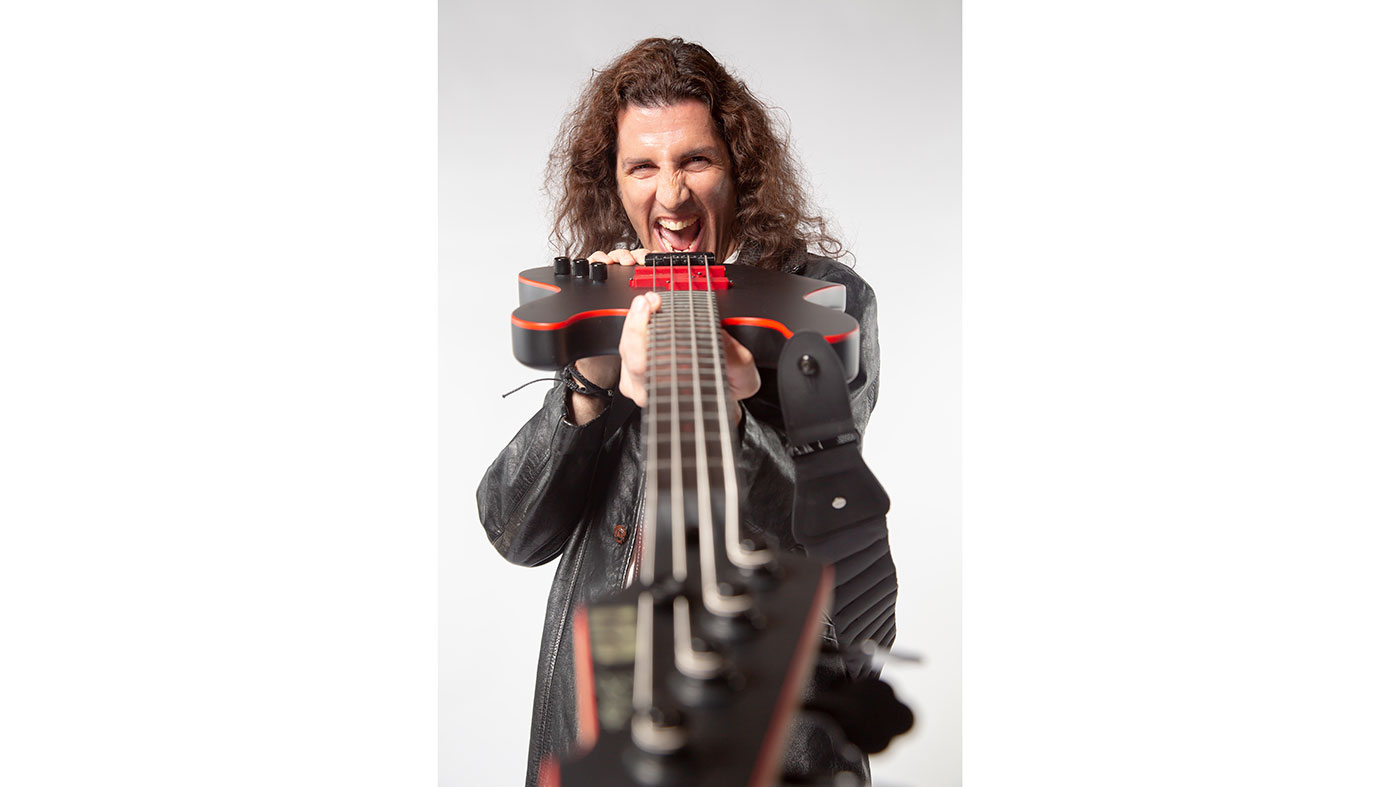
Songwriting clinic
Did you both write songs for the record?
Ellefson: “We did. The way it started was doing Hartke bass clinics together. One night in London I leaned over to Frank and I said 'You know, you and I should really write some of our own material so we have our own backing tracks for these clinics.' I was referencing Victor Wooten and Steve Bailey, who put together their DVDs back in the '90s.”
Bello: “We went back and forth. I had some stuff that I brought in, and David had songs that he brought in, and then we got together in the studio and started putting it together. It worked out really easy; it was always about writing the best songs.”
Ellefson: “I liked the idea of it being two different bass players, as Frank plays with his fingers and I play with a pick. Even in our own native bands, we’ve got very different approaches to the bass. That was the impetus for getting this started.”
How did the songs get recorded?
It’s like a truth is revealed, and the joy lies in the chorus
Ellefson: “Frank came through Phoenix, where I live, on the Among The Living anniversary tour that Anthrax were doing, and I went down and picked him up and brought him over to my house, and we just started throwing ideas at each other. Frank had demoed some ideas that he had, which were Booze & Cigarettes and Tell The World, and right away he said, ‘We should get Jay Ruston involved as producer,’ because Jay is also a bass player, and he really understands the need for Frank and I to develop what this is.”
Bello: “Jay really made it all possible. He really worked on my guitar parts and made them what they are. He’ll tell you exactly what a part needs, and then layer the parts the way they need to be layered. I love working with him.”
Ellefson: “As soon as Jay heard the songs, he understood the bigger picture. Unknown to us, Frank and I both had these songs inside us that really needed to come out. He was sensitive to how all that fits into our lives, and he really became the fifth Beatle for Frank and me.”
Bello: “The idea was to release this record in 2017, although in retrospect I’m glad we didn’t because we didn’t have enough time. We want to give it the best shot that it has, in between the schedules of our main bands.”
Ellefson: “I love Frank’s voice inside his songs, it really sits well deep in their centre. Quite often the intro and the verses are dark and pensive and in a minor key, and then the chorus explodes into a really groundbreaking major key that really lifts it harmonically to a place where you get excited. It’s like a truth is revealed, and the joy lies in the chorus.”
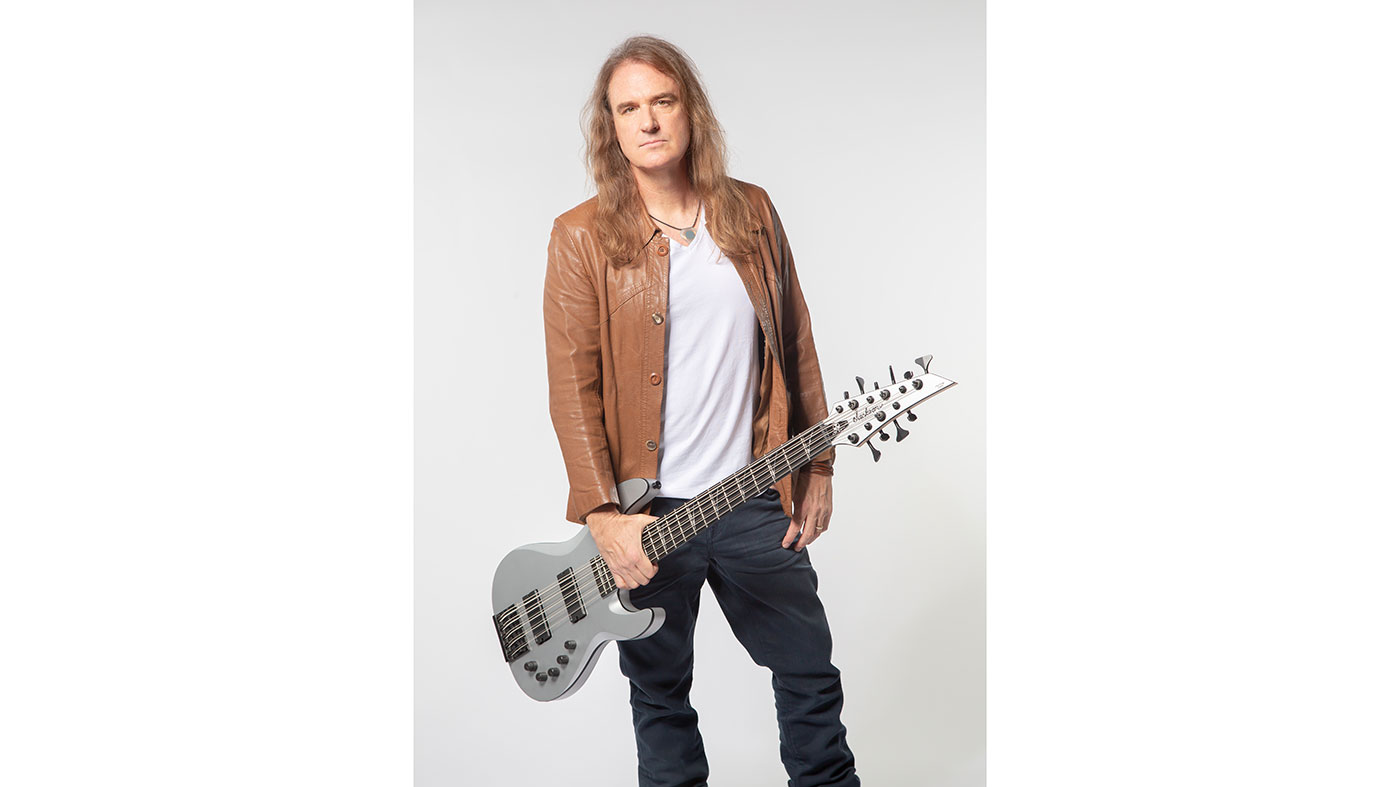
Six strings or four?
Do you both play guitar and bass on the new album?
Bello: “I played more guitar than bass on the record. It was rhythm guitar; our friends played the solos. David played some of the best bass I’ve ever heard; I’m so impressed with what he came up with. He’s an incredible bass player, which really sank in for me on these songs. He also came up with great guitar parts, so I really enjoyed the process.”
Ellefson: “I played bass on all of the songs and then, as Frank laid down his guitar parts, I would pick up the guitar and add some melodic constituents - little chiming overtones and things that would flesh out the melodies. I particularly love playing bass to Frank’s songs. They bring out a whole other kind of melodic counterpoint bass playing in me. Frank liked that kind of bass playing on his songs, so that defined the roles.”
Who were the references when it came to the bass this time?
'80s New Wave music was as much a part of my musical upbringing as hard rock and heavy metal
Ellefson: “I always think of Joe Jackson, and some of the '80s New Wave music, which was as much a part of my musical upbringing as hard rock and heavy metal. It was on TV, it was on late-night video shows, on rock radio: everything from the Cars to the Clash and early U2. I loved the bass playing on that kind of music.”
David, you’re known in Megadeth for very fast, precise pick playing that is largely locked in with the guitar riffs. How was your approach different this time?
Ellefson: “In Megadeth, I’m privileged to be in one of the most musically progressive bands, period, and certainly in the thrash metal genre. We defined our roles early on as lead vocals, lead guitar, lead bass and lead drums, so it’s not like I’m left wanting for opportunities to showcase progressive bass playing.
“With that said, when I’m playing to Frank’s songs in A&A, the parts he plays are much more open and chordal than I’m used to, which means I have this huge bandwidth to lay down my own melodies. I can create a separate song within- a-song on the bass.”

Going solo
There’s a lot of interesting bass tones on the album, as we’d expect.
Ellefson: “Well, what really became the defining A&A sound is the eight-string bass. When we got together on the first session I suggested that we bring as many weird basses to the party as we could. Frank asked ESP to deliver an eight-string to the studio and as soon as I picked it up, I called them and bought it. I was like ‘This one’s mine!’ and it became our go-to bass.
“Since then I’ve had Jackson make me a 10-string bass, which is essentially a new invention. In fact I’ve invented several new basses with Jackson, from the original five-string, to the Kelly Bird bass and now this one, which is the only one of its kind in the world. I designed it specifically so we can go and play live with A&A.”
Could you talk us through how you amplified the bass in the studio?
When we plugged that eight-string ESP into the Kemper, that was really when A&A was born
Bello: “Jay is awesome about getting sounds from the Kemper. We actually took some tracks that I’d recorded in Garageband at home. They came out so good that we brought them to Jay’s studio and mixed the files with the new tracks. It sounded great.
Ellefson: “We’d get Jeff Friedl to cut the drum tracks and then go to Jay’s home studio in Sherman Oaks and cut all the guitars and bass. When we plugged that eight-string ESP into the Kemper, that was really when A&A was born. All of a sudden I would be playing lead guitar parts on the bass.
“We loved it because it sounds like lead guitar, and yet it also still sounds like very aggressive bass - because at the end of the day we’re both very aggressive bassists. But it added a melodic component. Suddenly we didn’t have to call a lead guitar player to play the part, we’d just play it on the eight-string bass.”
Soloing on an eight-string bass must have been a challenge.
Ellefson: “Well, one thing I studied when I was growing up and playing in jazz band in high school, was learning how to solo over chord changes. In heavy metal, the riff is basically the equivalent of chord changes in jazz, but it’s much harder to solo over a riff because the chord centre can constantly change within it. You can find yourself moving from major to minor to diminished all within a couple of bars, so now I had to learn to solo over a genre that I’d been playing my entire life.
“Frank and I have never really been the soloists in our native bands, so now was our time to step up. Creatively, it was fantastic, because it really pushed us to a place where we’d never been before.”
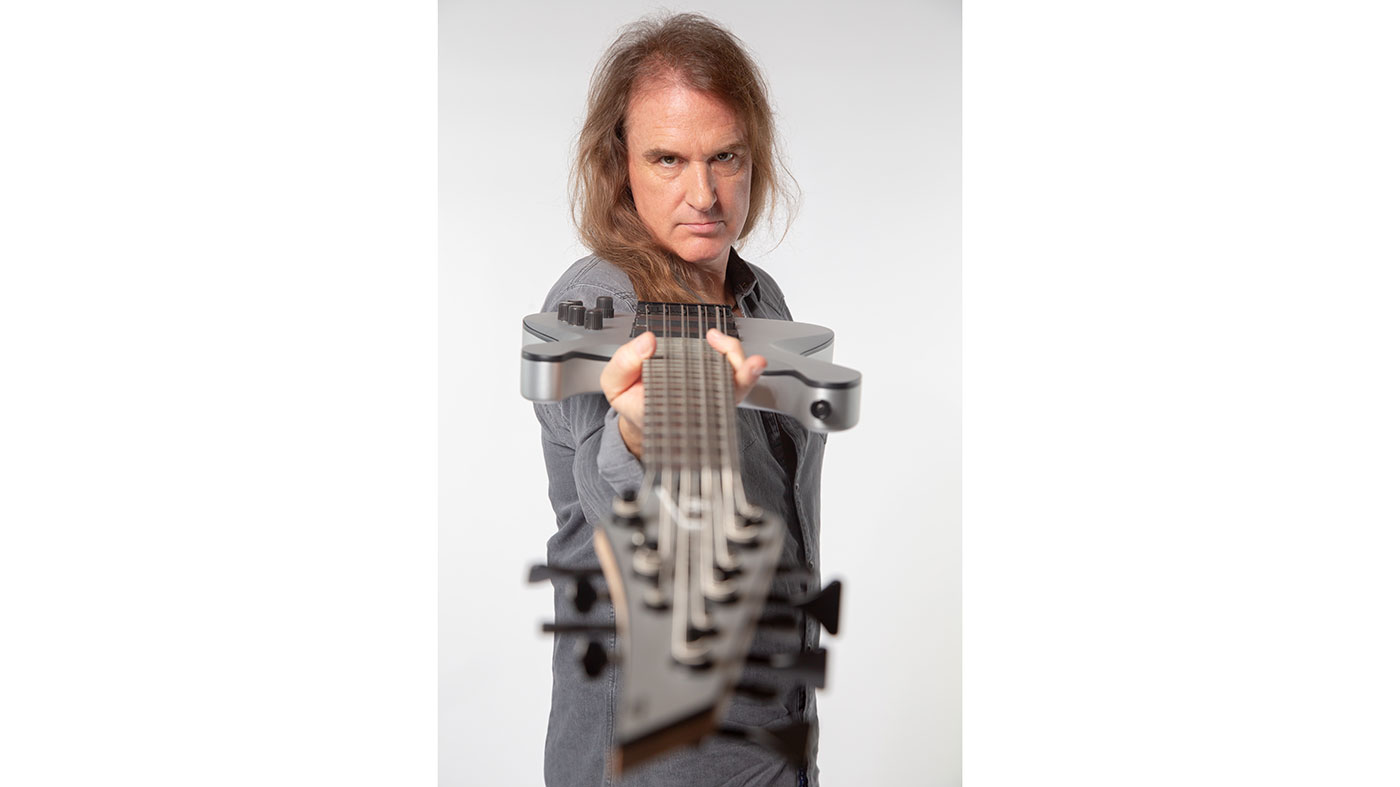
Playing their Ace
You’ve got some great guitar players on board.
Ellefson: “We hired in the cream of the crop for lead guitar - Nita Strauss, Gus G - and on the single, Late, we got our childhood hero Ace Frehley to play a solo. For me and Frank, that was the cherry on top!”
You explore some profound emotional themes in the songs.
Bello: “I didn’t know if I should go this deep, to be honest. I use the word ‘cathartic’ a lot to describe the songs, because it’s therapy for me. It gets it all out, hence the title. There’s a huge amount of emotion and it’s all real stuff.”
[Here Again channels] an Eastern Buddhist philosophy: that which you don’t learn the first time will re-present itself until you learn it
Ellefson: “I agree. The song Here Again started out as a clinic backing track before Frank and I wrote lyrics for it. For that song, we had a similar feeling about how you go through moments in your life when you struggle and you come out the other side, only to be brought back to that same challenge point.
“A lot of that has been historically the case in the rest of our music careers. It’s like, ‘How did I get back here again?’, haha! It’s an Eastern Buddhist philosophy: that which you don’t learn the first time will re-present itself until you learn it.”
Lyrically, Frank, you dig deep on this record, and I’m sure our readers will appreciate that courage.
Ellefson: “As much as Frank is known for being happy and jovial, you discover with A&A that there’s a pensive side to him that even I didn’t know about. This was really a way for him to go deep into some topics. It can be scary to bare your soul to the world in that way.”
Bello: “Abandonment, the emotions I feel about my brother’s passing, growing up the way I grew up, with my grandmother after my dad left... I guess that builds up a lot of stuff. It feels good to get it out and share it with anybody else who’s going through that kind of issue in their lives. Maybe it will be cathartic for them too.”
Altitudes & Attitude’s debut album Get It Out is out now on Megaforce.
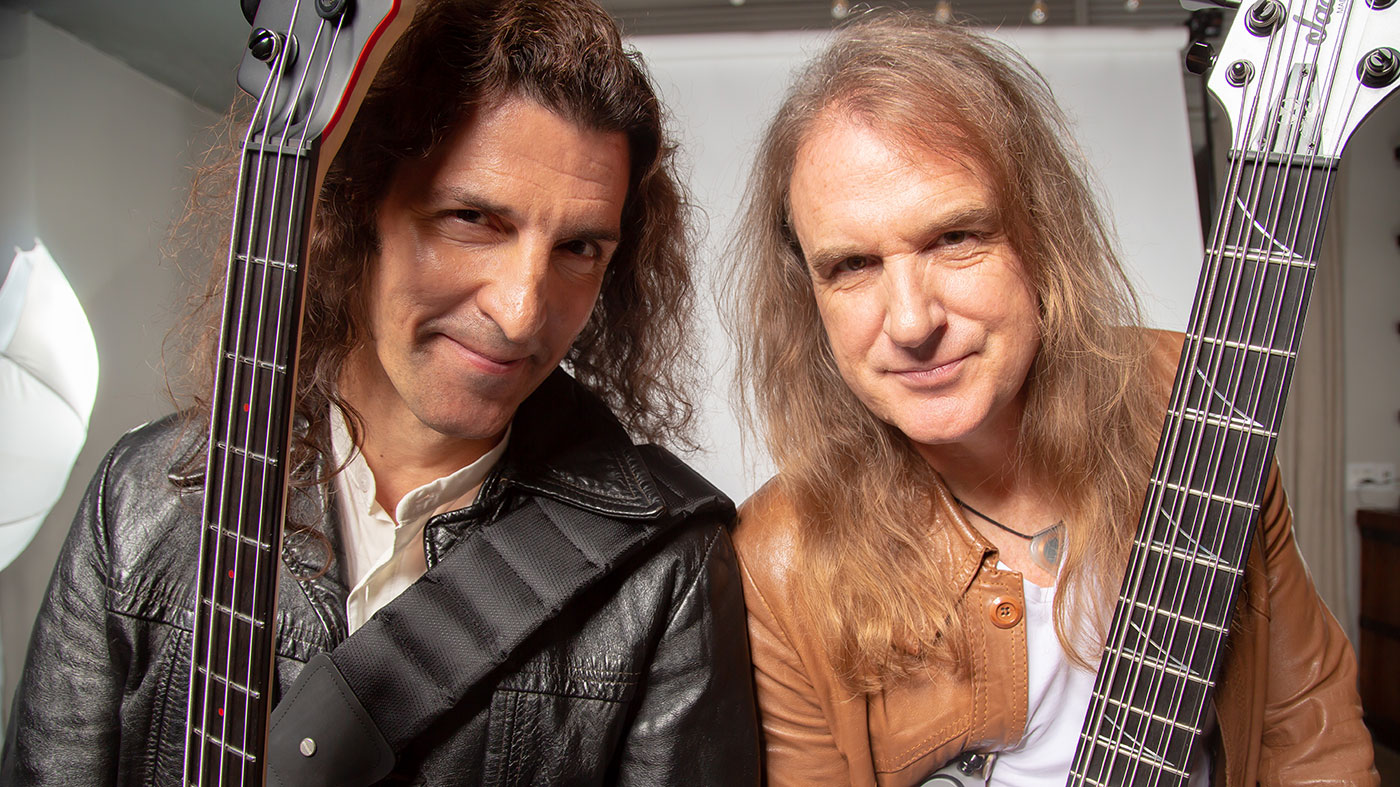


“I’m beyond excited to introduce the next evolution of the MT15”: PRS announces refresh of tube amp lineup with the all-new Archon Classic and a high-gain power-up for the Mark Tremonti lunchbox head
“These guitars travel around the world and they need to be road ready”: Jackson gives Misha Mansoor’s Juggernaut a new lick of paint, an ebony fingerboard and upgrades to stainless steel frets in signature model refresh









